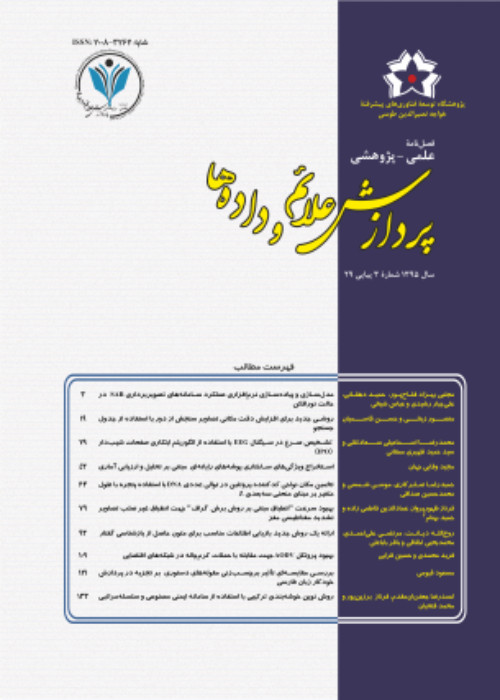Distributed and Cooperative Compressive Sensing Recovery Algorithm for Wireless Sensor Networks with Bi-directional Incremental Topology
Recently, the problem of compressive sensing (CS) has attracted lots of attention in the area of signal processing. So, much of the research in this field is being carried out in this issue. One of the applications where CS could be used is wireless sensor networks (WSNs). The structure of WSNs consists of many low power wireless sensors. This requires that any improved algorithm for this application must be optimized in terms of energy consumption. In other words, the computational complexity of algorithms must be as low as possible and should require minimal interaction between the sensors. For such networks, CS has been used in data gathering and data persistence scenario, in order to minimize the total number of transmissions and consequently minimize the network energy consumption and to save the storage by distributing the traffic load and storage throughout the network. In these applications, the compression stage of CS is performed in sensor nodes, whereas the recovering duty is done in the fusion center (FC) unit in a centralized manner. In some applications, there is no FC unit and the recovering duty must be performed in sensor nodes in a cooperative and distributed manner which we have focused on in this paper. Indeed, the notable algorithm for this purpose is distributed least absolute shrinkage and selection operation (D-LASSO) algorithm which is based on diffusion cooperation structure. This algorithm that compete to the state-of-the-art CS algorithms has a major disadvantage; it involves matrix inversion that may be computationally demanding for sufficiently large matrices. On this basis, in this paper, we have proposed a distributed CS recovery algorithm for the WSNs with a bi-directional incremental mode of cooperation. Actually, we have proposed a comprehensive distributed framework for the recovery of sparse signals in WSNs. Here, we applied this comprehensive structure to three problems with different constraints which results in three completely distributed solutions named as distributed bi-directional incremental basis pursuit (DBIBP), distributed bi-directional incremental noise-aware basis pursuit (DBINBP) and distributed bi-directional incremental regularized least squares (DBIRLS). The proposed algorithms solely involve linear combinations of vectors and soft thresholding operations. Hence, the computational load is significantly reduced in each sensor. In the proposed method each iteration consists of two phases; clockwise and anti-clockwise phases. At each iteration, in anti-clockwise phase, each node receives the local estimate from its previous neighbor and updates an auxiliary variable. Then in the clockwise phase, each node receives the updated auxiliary variable from its next neighbors to update the local estimate. On the other hand, information exchange in two directions in an incremental manner which we called it bi-directional incremental structure. In an incremental strategy, information flows in a sequential manner from one node to the adjacent node. Unlike the diffusion structure (like as D-LASSO) where each node communicates with all of their neighbors, the incremental mode of cooperation requires the least amount of communication and power. The low computational complexity and better steady state performance are the important features of the proposed methods.
- حق عضویت دریافتی صرف حمایت از نشریات عضو و نگهداری، تکمیل و توسعه مگیران میشود.
- پرداخت حق اشتراک و دانلود مقالات اجازه بازنشر آن در سایر رسانههای چاپی و دیجیتال را به کاربر نمیدهد.


